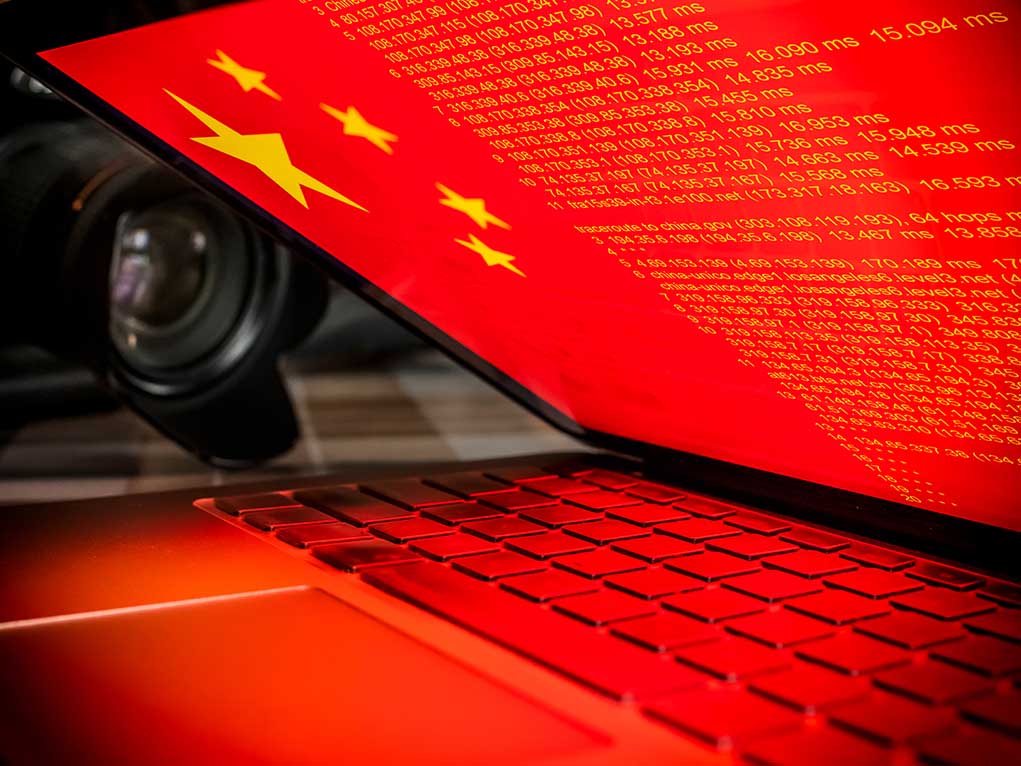
Intelligence veteran Denis Mandich warns that China’s rapid advances in quantum computing may soon leave the United States behind, potentially compromising national security and every encryption system protecting America’s critical infrastructure and state secrets.
Key Takeaways
- China is rapidly advancing in quantum technologies, with the potential to surpass the U.S., threatening America’s technological dominance and national security
- Quantum sensing and communications are developing faster than quantum computing, with China expanding quantum networks believed to be immune to eavesdropping
- The 2025 Defense Intelligence Agency threat assessment warns that quantum technologies are nearing operational military use by rival nations
- A “cryptanalytically relevant quantum computer” could break current encryption systems protecting financial systems and government secrets
- The U.S. government is being urged to immediately modernize IT systems and adopt post-quantum cryptography to counter these threats
China’s Quantum Leap Threatens U.S. Security
The United States faces an unprecedented technological challenge as China’s quantum computing capabilities rapidly advance toward a point where they could compromise America’s most secure systems. Intelligence experts are sounding the alarm that China may be closer than previously thought to developing a quantum computer powerful enough to break encryption protecting everything from financial systems to military communications. The threat has become so concerning that the Defense Intelligence Agency’s 2025 threat assessment specifically highlights the imminent operational military use of quantum technologies by rival nations like China and Russia.
“The timeline is shrinking. The threshold is roughly four thousand logical qubits, and leading programs are racing toward that mark already. Delay is not just risky, it’s irrational. Progress in quantum computing is nonlinear and prone to sudden breakthroughs, and our adversaries have every incentive to conceal milestones until it’s too late,” warned Denis Mandich, a veteran of the U.S. intelligence community, during a recent congressional hearing.
China’s Quantum Computing: The Underestimated Disruptor 🧵🪡
—
While AI development remains the focal point of global technological competition, China’s quantum computing progress may prove to be the more consequential long-term disruptor. Unlike AI, which primarily enhances… pic.twitter.com/HD36BKcXRe
— Brian Roemmele (@BrianRoemmele) January 31, 2025
Hidden Advances and Military Applications
What makes China’s quantum progress particularly concerning is the deliberate secrecy surrounding its programs. “We don’t even know the names of the quantum companies in China. There are only a couple of them that are public. The rest of them are completely unknown,” Mandich testified to lawmakers. This lack of transparency suggests a concentrated effort to establish quantum superiority without alerting Western nations. More alarming is the fact that China is actively expanding quantum communications networks using quantum key distribution systems believed to be immune to traditional eavesdropping methods.
“They have access to everything that we’ve ever done in all of our companies; all of our companies have been penetrated, as far as we know, many of their employees are in China,” Mandich warned, highlighting how China’s intelligence gathering contributes to their quantum advancement.
America’s Vulnerability and Response
The strategic threat extends beyond mere technological competition. Quantum sensors could potentially detect changes in magnetic or gravitational fields, enabling China to track our stealth aircraft and submarines. Additionally, quantum-enhanced navigation systems could operate independently of GPS, giving Chinese military forces significant advantages in contested environments. The DIA report warns of the convergence of quantum technologies with AI, electronic warfare, and microelectronics, raising the risk of a technological surprise that could fundamentally alter military balance.
“Although select research areas, such as sensing, are advancing more rapidly, non-governmental experts indicate that development of a quantum computer capable of decryption is unlikely in this decade,” noted analysts in the DIA report, though many experts believe China’s timeline may be accelerating faster than publicly acknowledged.
The U.S. government is being urged to take immediate action to address these vulnerabilities. During congressional hearings, experts emphasized the need to modernize federal IT systems and update cybersecurity protocols with post-quantum cryptography. Marisol Cruz Cain told lawmakers, “[The] United States needs to develop a strong quantum workforce to maintain its leadership position in quantum technology, hardware, and software development. In doing so, leveraging programs, training, and hiring are key.”
President Trump’s Opportunity
With President Trump focused on technological sovereignty and protecting American interests, quantum computing represents a critical domain requiring immediate attention. The administration has an opportunity to prioritize quantum research funding and create a comprehensive strategy to counter China’s advances. Export controls on semiconductors have slowed China’s progress temporarily, but Beijing continues to find workarounds through domestic investments and global partnerships, including troubling technical cooperation with Russia, North Korea, and Iran.
“Microelectronics remain the linchpin of technology competition and represent a critical chokepoint in technology development and acquisition efforts,” stated the DIA assessment, highlighting an area where America can maintain leverage. Despite these challenges, the race isn’t over. With proper investment and focus on developing a quantum-ready workforce and infrastructure, the United States can maintain its technological edge. Still, the window for action is rapidly closing as China’s quantum capabilities continue to advance behind closed doors.




